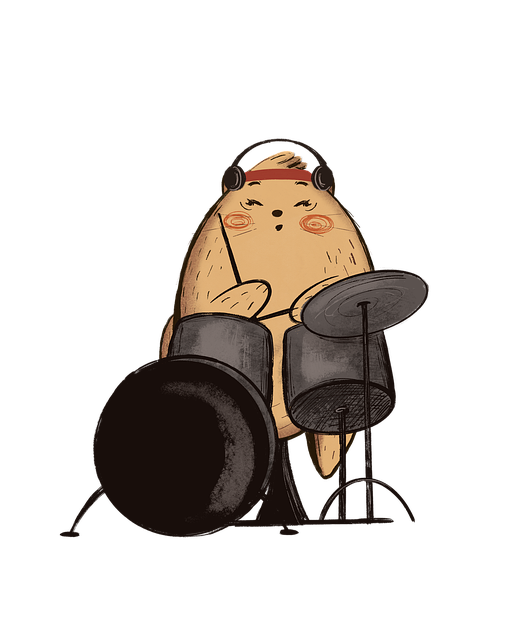AI tools are revolutionizing music creation for ai musicians, offering access to vast datasets and machine learning algorithms to generate novel compositions, assist in arrangement, mixing, and even compose tracks based on user inputs. These technologies democratize professional-grade production, enabling experimentation with diverse genres and instruments without extensive training. By adapting to individual styles and personalizing the creative process, AI is fostering innovation and pushing artistic boundaries in music production. Rather than replacing human artists, AI acts as a collaborator, empowering ai musicians to unlock new creative directions through specific prompts and exploration of varied AI tools.
“Welcome to your ultimate guide on harnessing the power of AI in music creation! In this blog, we explore how Artificial Intelligence is transforming the artistic landscape for musicians. From composing melodies to enhancing production, AI music tools offer unprecedented possibilities. We’ll delve into their capabilities, benefits, and real-world applications through the eyes of fellow ai musicians. Get ready to unlock your creative potential and revolutionize your music production process.”
- The Rise of AI in Music Creation: Unlocking New Possibilities for Musicians
- Understanding AI Music Tools: Their Capabilities and Benefits
- How AI Revolutionizes the Music Industry: A Musician's Perspective
- Exploring Creative AI: Tips and Tricks for Effective Music Production
The Rise of AI in Music Creation: Unlocking New Possibilities for Musicians

The integration of Artificial Intelligence (AI) into music creation has marked a significant shift in the industry, opening doors to unprecedented possibilities for both seasoned musicians and aspiring artists alike. AI tools are revolutionizing the way music is composed, produced, and even performed, challenging traditional notions of creativity. By leveraging machine learning algorithms, these tools can analyze vast datasets of musical patterns, styles, and structures, enabling them to generate unique and innovative compositions.
For ai musicians, this means access to a wealth of resources that can enhance their creative process. AI-powered music generation can provide inspiration, suggest new harmonies, or even create entire tracks based on simple inputs from the user. This technology empowers musicians to explore diverse musical territories, experiment with different genres, and push artistic boundaries without requiring extensive technical expertise. As AI continues to evolve, its role in shaping the future of music is set to become increasingly prominent, fostering a new era of creative expression.
Understanding AI Music Tools: Their Capabilities and Benefits

AI music tools have revolutionized the way ai musicians create and produce music, offering a wealth of capabilities that streamline workflows and unlock new creative possibilities. These advanced technologies utilize machine learning algorithms to analyze vast datasets of musical patterns, compositions, and styles, enabling them to generate original and diverse sounds. One of the key benefits is their ability to assist in composition, arrangement, and even mixing tasks, providing suggestions and automations that save time and enhance musical quality.
For ai musicians, these tools democratize access to professional-grade music production. They offer intuitive interfaces that allow users to experiment with different genres, instruments, and effects without extensive training or expertise. Furthermore, AI music tools can adapt to individual styles and preferences, personalizing the creative process and fostering innovation in the ever-evolving landscape of music production.
How AI Revolutionizes the Music Industry: A Musician's Perspective

Artificial Intelligence (AI) is transforming the music industry, offering unprecedented opportunities for both AI musicians and artists alike. From composition to production, AI tools are revolutionizing the creative process. These innovative technologies can generate unique musical patterns, suggest harmonies, and even create entire songs based on user input, providing a new dimension of inspiration for musicians.
For AI musicians, these tools democratize music creation, enabling individuals without formal training to produce high-quality tracks. They streamline workflow, allowing artists to focus more on their creative vision rather than technical aspects. Moreover, AI facilitates collaboration between human and machine, where musicians can experiment with new ideas and styles, pushing the boundaries of what’s possible in music production.
Exploring Creative AI: Tips and Tricks for Effective Music Production

AI has opened up a world of possibilities for music production, offering AI musicians unprecedented creative freedom and tools. Exploring this technology can seem daunting at first, but with some tips and tricks, it becomes an exciting journey. One key is to understand that AI isn’t here to replace human creativity but enhance it. Allow AI to assist in tasks like generating initial melodies or harmonies as a starting point for your compositions.
Experiment with different AI music tools, each offering unique capabilities. Some excel at generating chord progressions, while others can create intricate rhythms or even compose entire tracks based on your inputs. Remember, the more specific your prompts, the better the results. Define desired moods, genres, or even reference songs to guide the AI’s output. Collaborating with this technology requires a playful and exploratory mindset, where you provide direction and then let the AI surprise you with its creative interpretations.
In conclusion, this blog has explored the transformative power of AI music tools in revolutionizing the creative process for ai musicians. By understanding their capabilities and benefits, musicians can unlock new possibilities, enhance productivity, and push artistic boundaries. Embracing these innovative technologies opens doors to endless musical exploration and promises an exciting future for the industry.
